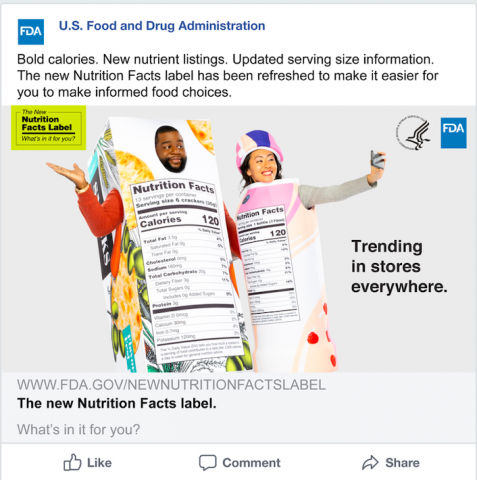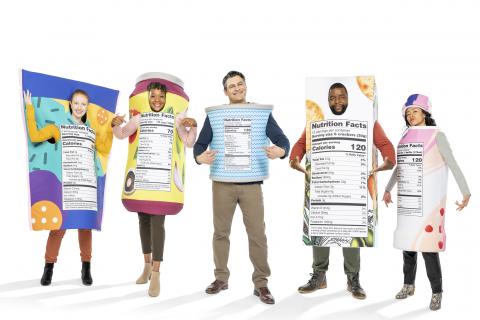Claudine Kavanaugh, PhD, MPH, RD Director, Office of Nutrition and Food Labeling, Center for Food Safety and Applied Nutrition, U.S. Food and Drug Administration
On March 11, the U.S. Food and Drug Administration (FDA) launched What's in it for you? — an educational campaign to accompany the updated Nutrition Facts label. The campaign provides health care professionals, middle and high school teachers, dietitians, and community leaders with resources to help consumers understand and use the new Nutrition Facts Label. It’s designed to empower consumers to make informed food choices and to adopt and maintain a healthy diet.
This is the first major update to the Nutrition Facts label in over 2 decades. The changes reflect new scientific information, including the link between diet and chronic diseases such as obesity and heart disease. The changes will make it easier for consumers to make informed food choices and meet the recommendations from the Dietary Guidelines for Americans. Changes to the label include:
- Serving size is now in a large, bold font. It’s also been updated to better reflect the amounts that people are likely to eat and drink. By law, serving sizes need to reflect what people typically eat and drink, rather than what is recommended.
- Calories is now in a larger, bold font to help highlight this information.
- Nutrients required on the label now include vitamin D and potassium. Calcium and iron will continue to be required, but vitamins A and C will no longer appear since deficiencies of these vitamins are rare. In addition, nutrients must now be presented in grams, as well as in the % Daily Value.
- Added sugars is a new addition to the label. It and must be listed in grams and as % Daily Value, in most cases.
- % Daily Value now has the following footnote to clarify its meaning: “The % Daily Value tells you how much a nutrient in a serving of food contributes to a daily diet. 2,000 calories a day is used for general nutrition advice.”
The updated Nutrition Facts Label Education Campaign features a wealth of educational materials on nutrition, including resources for specific groups. For example:
- Health care professionals and physicians can learn how to counsel patients about using the Nutrition Facts label with new, free continuing medical education videos.
- Health educators and dietitians can use the Health Educator’s Nutrition Toolkit, the Interactive Food label, Read the Label resources, fact sheets, and other tools specifically tailored for different populations such as youth and adults.
- Teachers have access to the nutrition-based curriculum, Science and Our Food Supply: Using the Nutrition Facts Label to Make Healthy Food Choices.
You can use the campaign materials to help increase public awareness, understanding, and use of the updated Nutrition Facts label! Our resources are free and available for general use. Be sure to check out our social media toolkit for the campaign — and use the hashtag #NewNutritionFactsLabel in appropriate posts!





